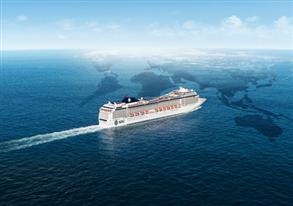ABS Releases Fuel Cell Guidance To Support Industry Decarbonization Objectives

A Guide for Fuel Cell Power Systems for Marine and Offshore Applications has been published by ABS. It will help in the design, evaluation, and construction of fuel cell systems on vessels and offshore assets.
“As technology evolves and regulators challenge shipping to decarbonize, fuel cells are increasingly seen as having an important role to play in meeting that challenge,” said Gareth Burton, ABS Vice President, Technology. “ABS has in-depth experience in assisting vessel owners and operators in low carbon emission options. Now is the right time to support the industry with guidance on compliant and efficient application of fuel cell power.”
The Guide covers all types of fuel cell. It gives importance to the usage of fuel cell systems and arrangements for propulsion and auxiliary systems in new builts as well as the retrofit projects keeping safety principles intact.
After the installation of fuel cell comes in terms with the Guide’s requirements, the optional notation FC-E (Essential Service) or FC-NE (Non-Essential Service) may be granted on the request of the Owner. It has been crafted keeping in the view the new draft Interim Guideline to the International Code of Safety for Ships making use of Gases or other Low-flashpoint Fuels (IGF Code).
In order to find out about the usage of hybrid solid oxide fuel cell, the technology related to gas turbine generator and to know more it’s possibility to be installed on ships for future generations of LNG Carriers, ABS completed a joint development project with Daewoo Shipbuilding & Marine Engineering Co., Ltd.
Also read: Gas Engineer Or Petroleum Engineer Job: Is It A Lucrative Offshore Career?
Mr. Il-Guk Woo, DSME Vice President, Naval & Energy System R&D Institute, said: “Based on the lessons learned from the previous research, we established a design philosophy, emphasizing a balance between efficiency and simplicity for the sake of easy manufacturing, installation, operation and maintenance. This technology will be available to the market in the near future.”
In the ABS Advisory on Hybrid Electric Power Systems, fuel cells have also been mentioned. It analyses the probable advantages and disadvantages, obstacles and the preparedness for the primary hybrid electric power systems and parts that will suit the marine and offshore applications the most.
Reference: eagle






